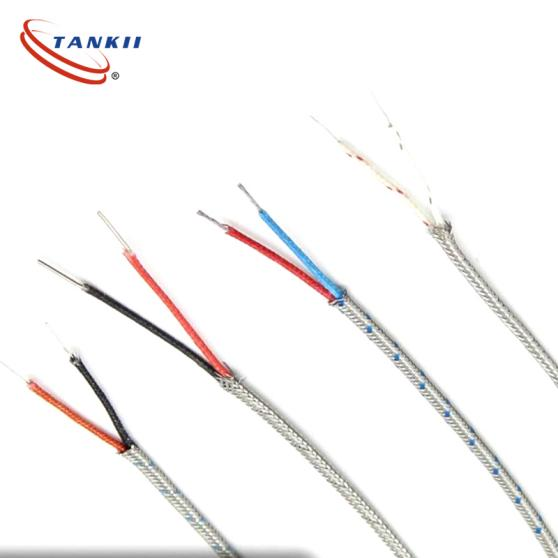Thermocouples are among the most widely used temperature sensors across industries such as manufacturing, HVAC, automotive, aerospace, and food processing. A common question from engineers and technicians is: Do thermocouples require special wire? The answer is a resounding yes—thermocouples must be connected with the correct type of wire to ensure accurate and reliable temperature measurements.
Why Thermocouples Need Special Wire
Thermocouples operate based on the Seebeck effect, where two dissimilar metals generate a small voltage (in millivolts) proportional to the temperature difference between the measurement junction (hot end) and the reference junction (cold end). This voltage is extremely sensitive, and any deviation in wire composition can introduce errors.

Key Reasons Why Standard Electrical Wire Won’t Work
1. Material Compatibility
- Thermocouples are made from specific metal pairs (eg. Type K uses Chromel and Alumel, Type J uses Iron and Constantan).
- Using ordinary copper wire would disrupt the thermoelectric circuit, leading to incorrect readings.
2. Temperature Resistance
- Thermocouples often operate in extreme temperatures (from -200°C to over 2300°C, depending on type).
- Standard wires may oxidize, degrade, or melt under high heat, causing signal drift or failure.
3. Signal Integrity & Noise Resistance
- Thermocouple signals are in the millivolt range, making them susceptible to electromagnetic interference (EMI).
- Proper thermocouple wire includes shielding (e.g., braided or foil shielding) to prevent noise from distorting readings.
4. Calibration Accuracy
- Each thermocouple type (J, K, T, E, etc.) has a standardized voltage-temperature curve.
- Using mismatched wire alters this relationship, leading to calibration errors and unreliable data.
Types of Thermocouple Wire
There are two main categories of thermocouple wire:
1. Extension Wire
- Made of the same alloys as the thermocouple itself (e.g., Type K extension wire uses Chromel and Alumel).
- Used to extend the thermocouple signal over long distances without introducing errors.
- Typically used in moderate-temperature environments (since high heat can still affect the insulation).
2. Compensating Wire
- Made from different but thermoelectrically similar materials (often less expensive than pure thermocouple alloys).
- Designed to match the thermocouple’s output at lower temperatures (usually below 200°C).
- Commonly used in control panels and instrumentation where extreme heat is not a factor.
Both types must comply with industry standards (ANSI/ASTM, IEC) to ensure consistency and performance.
Choosing the Right Thermocouple Wire
When selecting thermocouple wire, consider:
- Thermocouple Type (K, J, T, E, etc.) – Must match the sensor type.
- Temperature Range – Ensure the wire can handle the expected operating conditions.
- Insulation Material – Fiberglass, PTFE, or ceramic insulation for high-heat applications.
- Shielding Requirements – Braided or foil shielding for EMI protection in industrial environments.
- Flexibility & Durability – Stranded wire for tight bends, solid core for fixed installations.
Our High-Quality Thermocouple Wire Solutions
At Tankii, we provide premium thermocouple wire designed for precision, durability, and reliability. Our product offerings include:
- Multiple Thermocouple Types (K, J, T, E, N, R, S, B) – Compatible with all major thermocouple standards.
- High-Temperature & Corrosion-Resistant Options – Ideal for harsh industrial environments.
- Shielded & Insulated Variants – Minimize signal interference for accurate readings.
- Custom Lengths & Configurations – Tailored to your specific application needs.
Thermocouples must be connected with the correct wire to function properly. Using standard electrical wire can lead to measurement errors, signal loss, or even sensor failure. By selecting the right thermocouple wire—whether extension or compensating—you ensure long-term accuracy, stability, and performance in your temperature monitoring systems.
For expert guidance and high-quality thermocouple wire solutions, contact us today or browse our product catalog to find the perfect match for your application!
Post time: Apr-23-2025









